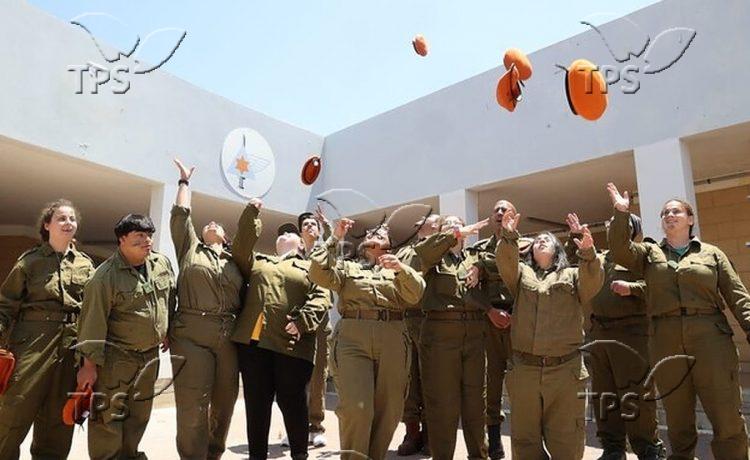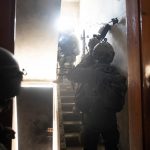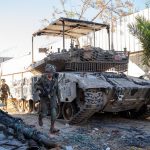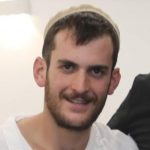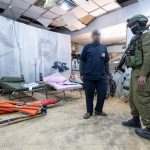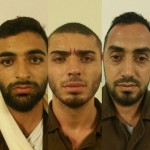Soldiers With Disabilities Earn Special Berets
Jerusalem, 20 July, 2023 (TPS) -- Eleven young men and women with various disabilities recently joined an unforgettable Israel Defense Forces “Beret March,” marking their induction as full-fledged soldiers.
These 11 new soldiers, all from Ashklelon’s Moriah School, are proud members of Special in Uniform, a revolutionary project of the IDF in conjunction with the Jewish National Fund-USA. The program incorporates young people with mild physical and mental disabilities such as Downs Syndrome, cerebral palsy and autism into Israel’s military.
During their period of service, they receive training and skills that empower them to integrate long-term into Israeli society and the workforce.
For most soldiers, basic training in the IDF culminates with a “Beret March” of 30 km followed by a ceremony in which the soldiers receive their berets.
For the Special In Uniform soldiers, it meant a one km march to the Zikim army base near Ashkelon. Afterwards, they received the orange berets of Homefront Command.
“Volunteering with the IDF has changed my life, and the life of my friends,” said 19-year-old Snir Jamil, who has already been volunteering for close to three years. “Each and every one of us is a warrior, who found a way to contribute his skills and talents to our country. We learned that when we give, we get back. The IDF gives us all a chance to be our very best and give our all. They taught me to believe in myself.”
Family, friends, and fellow soldiers from the Homefront Command joined in the march.
Close to 1,000 Special In Uniform soldiers from communities across Israel are serving in 45 bases in all branches of the IDF.
Lt.-Col. (res.) Kobi Malcha, one of Special In Uniform’s directors, explained to the Tazpit Press Service that the program is more like “a class outside of school.”
“In school, they learn what they can learn. But real life is outside the school. They meet regular soldiers. They meet their commanders, and they are doing things that make them feel like everybody else. The magic is when they get their uniforms like everybody else. You see them grow up immediately,” Malcha said.
Israeli special needs schools continue to the age of 21, so between the ages of 17-21, they are taken by bus from their school to the army base once or twice a week. “They salute the flag, eat breakfast and begin work,” Malcha said.
Tasks might include helping in military logistics, gathering and entering data on computers, or other office work. “They do what they can,” said Malcha. In the process, they learn the value of teamwork, how to solve problems and other skills.
After finishing school, participants have the opportunity to be recruited into the army as a more formal soldier, which includes pay and other benefits even though they are technically excused from conscription. So by the time Special In Uniform’s participants take off their uniforms for the last time, they will have been in military life longer than many Israelis. Israel has universal conscription with a minimum service of two years and eight months.
Whether they continue with the army or not, Special In Uniform also helps its graduates find work.
The program includes Bedouins, Druze and Arabs.
Snir Jamil’s father, Itamar, said, “Snir has been part of Special in Uniform for close to three years, and we are all so proud of him. This organization offers kids like Snir the chance not just to feel like an equal, but to really be an equal. They invite every individual, regardless of ability or disability, to maximize his or her potential and give whatever he can to benefit our nation.”

